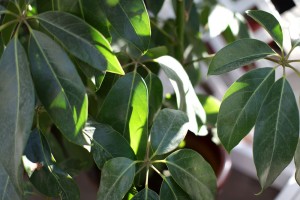 A sea of green leaves frolic in the breezy cool morning while the day decides to wake up. Fresh air makes it through the open window and to breath deeply of its sweet contents fills the lungs with oxygen and connects us with the world.
A sea of green leaves frolic in the breezy cool morning while the day decides to wake up. Fresh air makes it through the open window and to breath deeply of its sweet contents fills the lungs with oxygen and connects us with the world.
We cannot live without the likes of nature at our back door. Plants are the easiest examples that prove this planet and everything on it is connected with each other in so many ways.
We exist in a symbiotic relationship with our green living friends for two obvious reasons. They give us oxygen, we give them carbon dioxide. They produce food or become the food we eat. Yet there is something else plants give. It eludes our waking self and instead triggers a deep-seated recognition and connection to the natural world buried deep within our soul.
Plants give us a small link to the inner self that says I exist because of the world around me. And no doubt our historical roots as humans living under the naked sky understood the aspect of living on this majestic planet much better than we do today.
They stood in awe as spiritual witnesses to the powers of nature we have only begun to understand. Where today so many people are herded away into buildings, malls, coffee shops and beautiful homes, nature has become not the way towards life, but an alternative relief from the indoor lifestyle we have constructed for ourselves.
Biophilia was coined by Edward O. Wilson in his book Biophilia (1984) that described it as “the urge to affiliate with other forms of life.” It teaches us that something inside our own biology communes with nature and needs her structure around us on a daily basis. Buildings are lifeless without sunlight streaming through the windows or plants nestled in strategic areas. The benefits alone are staggering when simple potted plants are introduced into a home or work place. One study found significant productivity gains, less absenteeism, less health problems and a better sense of well-being were reported from employees.
Plants also provide a natural solution to cleaner indoor air. Most houses and buildings built today pollute air inside due to the various levels of toxic fumes emitted from materials used to build the structures even years after construction.
Opening windows, if possible, for fresh air provides part of the solution. But adding potted plants improves the air quality dramatically. Several common species of interior landscape plants have the ability to remove 50 to 75 percent of the total volatile organic compounds such as benzene and hexane.
In other words, glues from carpets and furniture, as well as fumes from paints and building materials, are absorbed by the respiration of plants into their roots system where microbes convert the toxic stew into food and energy.
And the longer plants are exposed to the chemicals, the better they are at converting it. Heavy duty filtration with built in or stand alone units might help eliminate bad air but are both costly, leaving heavy environmental footprints.
Bringing plants indoors to make the home or office come alive with health and comfort confirms the saying, nature knows best.
Mimic her wisdom for better health with plants and draw closer to the biological bond shared by every living system on this planet.
For help on selecting the best plants for your home or office, visit Roger’s Gardens on San Joaquin Hills Road, or Armstrong Garden Center on Coast Highway.




